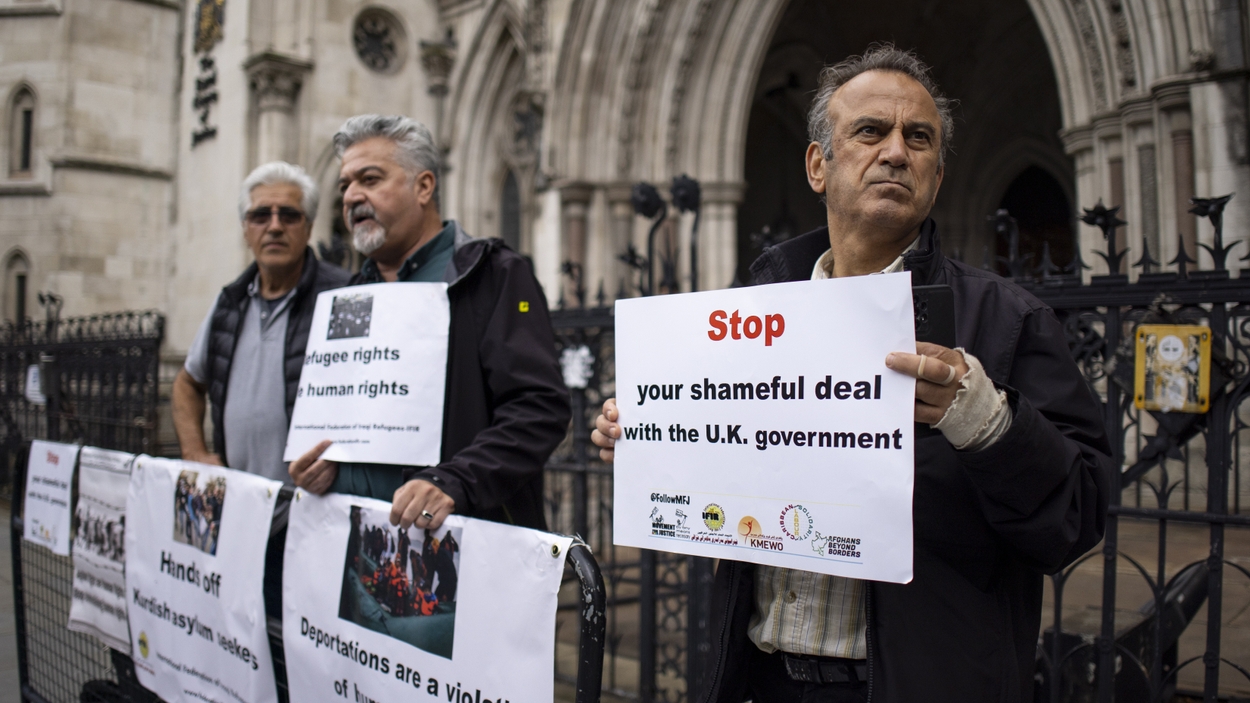Yesterday
•
reading time 3 minutes
1003 view
•
shop

In April 2022, the UK government announced a five-year pilot project to fly migrants who entered the UK illegally to Rwanda in Africa to await their asylum procedures. If eligible, they can get asylum in Rwanda. If not, they can stay there for other reasons or apply for asylum in another safe country.
The aim of the plan is to prevent many illegal migrants, mostly young men with economic goals, from coming to the UK and to break up criminal gangs of people-smugglers. In 2018, only a few hundred migrants in small boats made it across the Strait, by 2022 there will be 45,000.
A few days ago, the British Court of Appeals dealt a crushing blow to Rwanda’s plans. Two of the three competent judges ruled that Rwanda was not a safe country due to the “deficiencies” of the asylum system there. As a result, some asylum seekers may be returned to their countries of origin and face possible persecution. “Unless and until” these deficiencies are corrected, therefore, relocating asylum seekers is illegal. Instead, a third judge ruled that the plan provided “strong protection” for any migrants who would be flown to Rwanda.
The Court of Appeal decision is another hurdle in Rwanda’s plans. From the start, asylum seeker lawyers and British migrant aid organizations did everything they could to sabotage government initiatives, including the legal process. For example, the first Rwandan flight, which was scheduled for June last year, was unable to depart. At the last minute, the European Court of Human Rights in Strasbourg ruled that moving the migrants on the flight would cause “irreparable damage”.
The High Court decision contradicts a December 2022 British High Court decision that Rwanda’s plans do not conflict with the 1951 international Refugee Convention (Geneva Convention). It is often assumed that the country where migrants apply for asylum is obligated to process asylum applications there. But the international Refugee Convention only states that migrants seeking asylum may not be forwarded or returned to countries where “their life or freedom will be threatened because of their race, religion, nationality, membership of a particular social group or political opinion.” Even the United Nations Refugee Agency (UNHCR) has been hosting refugees there since 2019, local representatives describe it as a “very safe place.”
The British government has since appealed the Court of Appeals decision to the Supreme Court. British experts believe he has a reasonable chance of success, especially if the government finds a solution to legal objections from the Court of Appeal. That seems feasible, but still requires the necessary consultations with Rwanda.
If it later turns out that, despite all these efforts, the Rwandan project cannot be implemented, it is possible that the British Conservatives will take the initiative to denounce the European Convention on Human Rights. The agreement established the European Court of Human Rights, which has issued decisions in recent decades that severely limited governments’ ability to curtail immigration. In the Netherlands too, there are now calls to withdraw from the Treaty for that reason, one james vu for a country that highly respects the rule of international law.”

“Hipster-friendly creator. Music guru. Proud student. Bacon buff. Avid web lover. Social media specialist. Gamer.”







